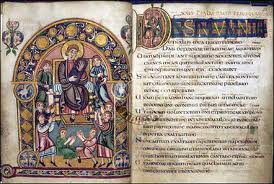It’s National Poetry Day here in the UK so I thought I’d post this villanelle up in honour of the day. I was once photocopying some poems for a talk when the whole machine ground to a halt, totally jammed. I pulled what poetry I could from its innards and rushed off to give my talk. When I came back the woman in charge of the machine pointed an accusing finger and said “Your poetry is jamming my machine!” I thought that was such a great line that I borrowed it and wrote her this poem for her to make ammends.
As always you can hear it by clicking the ‘play’ button, if it appears or else clicking the hyperlink in the poem’s inordinately long title. 🙂
On being told my poetry was found in a broken photocopier
My poetry is jamming your machine
It broke the photo-copier, I’m to blame,
With pictures copied from a world unseen.
My poem is in the works -I’m on the scene
We free my verse, and I confess my shame,
My poetry is jamming your machine.
Though you berate me with what might have been,
You stop to read the poem, just the same,
And pictures, copied from a world unseen,
Subvert the icons on your mental screen
And open windows with a whispered name;
My poetry is jamming your machine.
For chosen words can change the things they mean
And set the once-familiar world aflame
With pictures copied from a world unseen
The mental props give way, on which you lean
The world you see will never be the same,
My poetry is jamming your machine
With pictures copied from a world unseen
If you are enjoying these posts, you might like, on occasion, (not every time of course!) to pop in and buy me a cup of coffee. Clicking on this banner will take you to a page where you can do so, if you wish. But please do not feel any obligation!








